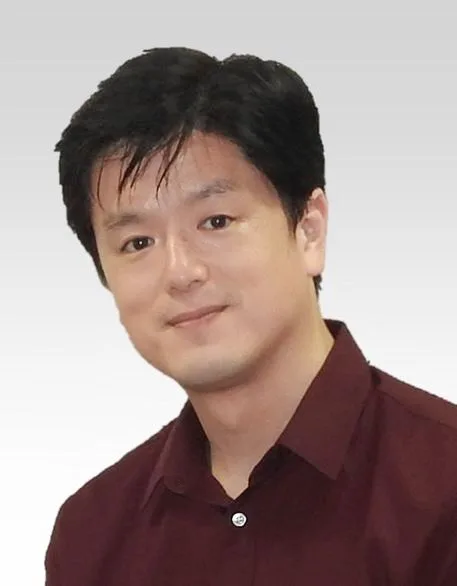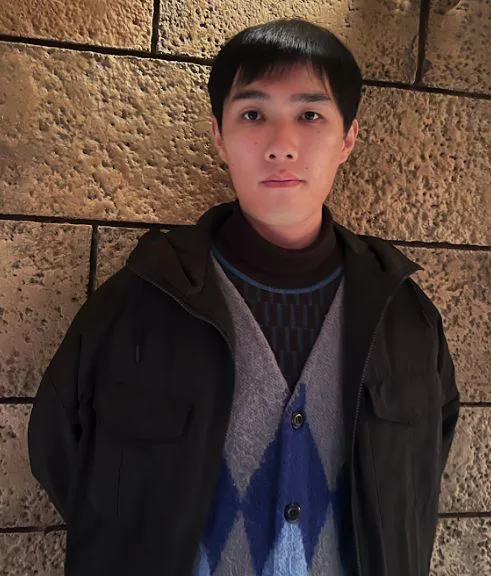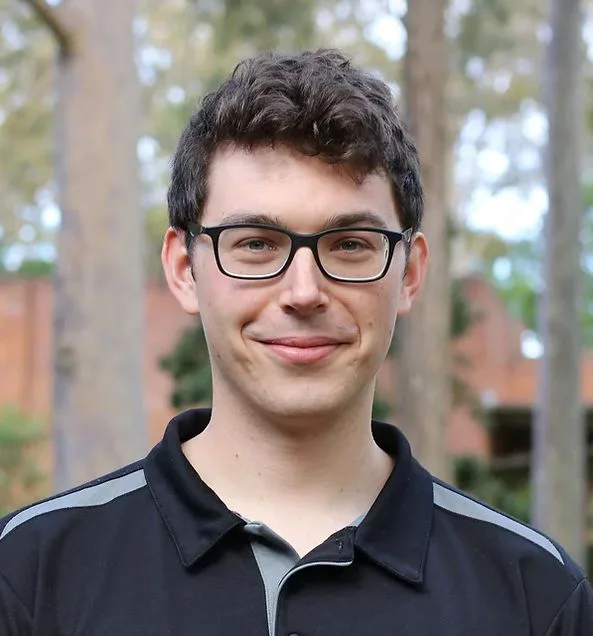Working previously as Managing Editor at New Age and General Manager at Financial Express both leading newspapers of Bangladesh, Ershad Khandker is our latest interviewee. He has a prestigious portfolio, moving from the world of print media into the world of self-driven entrepreneurship, highlighting the need for entrepreneurs to work in tandem with others “by constantly being sensitive to their needs” and to create a world of new humanism is his mantra in life. Scroll down and take a dip into the mind of the ever encouraging and self-motivated individual, Mr. Khandker.
TechieTonics: Please tell us something about yourself, how and when did you decided to enter into the world of journalism?
Ershad: I finished university having studied International Relations. I never really thought of myself as someone who belongs to a small contour that proposes constricted values and rigid sensibilities because it was clear to me that the human mind is like a vast ocean and more then capable of letting the entire world in its domain . I loved Lee Kuan Yew, founder of Singapore from my childhood (strange for an 8 year old!) in between Cricket, football and studies! But life of course is played out in its own dynamic way and according to your genetic preponderance and your socio-economic variables. My sporting, vaudevillian or bohemian tendencies had to be curtailed and more mundane requirements needed to be attended to! Having worked for some multinationals and played cricket (childhood dream), I joined the world of newspaper because the hours suited my family’s requirement, with my wife pursuing a exemplary successful career. Newspaper job allowed latitude with timing because my daughter was growing up and I needed to give her extra attention. I think I should mention that while I wrote voluminously , both in the editorial slot and all other sections of the newspaper , I basically ran the marketing and other departments of the newspapers I worked in, hence I was more an administrator , just like a doctor who is a hospital administrator . The reason was simple; I wanted to get an idea about running a company so that I could try my luck as an entrepreneur. A Managing Editor in Bangladesh is synonymous with the corporate title of Chief Operating Officer. I wrote because I could write a little and I liked seeing my name in print!
TechieTonics: What is the best thing that you like about being a journalist?
Ershad: My answer would be a trifle clichéd but I do believe that the journalists do a lot of good, for the society and for the country. Just see the accomplishments of NDTV! And in our country, we always get forewarned about brewing malaise or malfeasance through the media, be that from militant outfits, corruption, environmental issues or health issues or anything. On the other hand, we get the good news only from the newspapers. I don’t think I would have known that there is a Bangladeshi who won an Oscar for graphics had it not been for a newspaper! Any good news in national and international setting, it’s the newspaper that breaks it. I think journalism is a noble profession. There is room for creativity and opportunity of interacting with people from all walks of life.
TechieTonics: What is the current state of journalism in Bangladesh? Is there any threat if yes, where do these threats come from?
Ershad: Journalism in Bangladesh is thriving. We have a vibrant print and an equally vibrant Television media. Journalists are the sentinels that forewarn society about things that are inimical to social good. Just like India and other democratic countries, our journalists work hard to unearth events of all kinds. As far as threats to their work, I think that the term threat can be supplanted with the term difficulty. There are people who are intimidated by journalists because journalists are purveyors of truth. The real journalists go to the very core of the happenings or events. The people who have things to hide are intimidated and can sometimes try to create impediments in the work of journalists. But, that is occupational hazard in a developing or developed country as well , and that sort of impediment is not anything more serious than the hazard faced by people of so many other different professions.
TechieTonics: Working in one’s own venture is very different from working as an employee. What are some of the biggest differences you’ve noticed? What do you miss? What don’t you miss?
Ershad: I am self employed with interests in head hunting, indenting and garments. All of the operations are small, so that I can always give time for my daughter. Working for your own self is fun, but one sometimes realizes that, the strong corporate foundation created by companies where I used to work, did not just appear from thin air and were not there miraculously! I don’t think I fully fathomed the huge deal it is, how difficult it is to build a business. The logistics, finances, people management, accidents-market driven uncertainties, the official and unofficial head-aches and the travails involved with finding the right people to work with. A small example can be given. I was working with a partner who suddenly declared that he will take more than his share because he was handling the operational aspect which is more work and toil then the marketing that I do!! He did not realize that the network I have was built over decades, of hobnobbing and socializing and networking.
If I have to find aspects of having a job that I can mention, I would start with the assured pay packet at the end of the month! You only get your work done and if you are a cross seller, than you also contribute in other ways. But, at the end of the day, your salary is there. The owner risks his financial stability by investing and is accountable for everything in the business!
TechieTonics: Keeping in mind that the world on internet changes with blazing speed and also, everything reaches a culmination point sooner or later, we would love to know your views on the concept of blogging as a whole, how far do you think the concept will enjoy its success (if you really think that the way it has emerged, a success) and what’s fresh waiting to gobble it up?
Ershad: The internet is like the universe and there are galaxies in it, with their own dimensions. Blogging is one such galaxy. We have seen so much that has happened surrounding blogging, like the interesting creative things that are written right across the board on diverse subjects. Blogging has helped get stories of injustice across the world and actually helped spread change if not spawned revolutions! There are commercial aspects also. But Blogging is just a small part, of the vastness that is internet. Blogging is here to stay though there will be different aspects added to it as time elapses. Blogging has been recognized the world over and has been used for political, technological, and social platforms. But, I really think that, there might not be too much more to be achieved with blogging. And there is no need either. Look how books and newspapers and media have now existed for so long. I think that blogging is an extension to the other more established tools for sharing and disseminating information. It has become part of human civilization and will continue to exist for generations. The Internet needs to be protected and so does blogging. They are here to stay. Blogging is a resounding success, as far as I am concerned. Blogging in some ways, is a pressure treasure for mankind , because any human being can blog and get an outlet and be heard, anytime and anywhere!
TechieTonics: Where do you think the social media will evolve within the next five years? Do you think schools must include social media as a curriculum activity?
Ershad: I think social media will remain in its present shape, but there will be derivatives, off-shoots or subsidiaries emanating from this concept, but the future will see some more sectors becoming intertwined with social media to make use of it and take those sectors to the drawing rooms of the consumer . Take Facebook and the various sectors that it cultivates, I satiate my need for Jazz news and details from Facebook! There are health and other essential information being passed around and constructively disseminated. Social media is already in schools in ways. But I do not believe that social media should be there in schools with a broader mandate. Schools are well defined and their charter is quite noble and self fulfilling. So, no social media in schools in its pure form as part of daily discourse.
TechieTonics: What’s the startup scene like in Bangladesh? In your eyes, what are the biggest challenges for entrepreneurs in the country?
Ershad: The term start-up has become associated with technological companies. But, of course, we certainly need to consider any good entrepreneurial project as a start-up. Bangladesh held its first start-up bash about a week ago. The meet-up brought together mainly internet based start-ups offering various kinds of services, like online-shopping and consultancies etc. As far as other start-ups are considered, things are slow because of the global slow-down though there is a discernible change taking place. Entrepreneurs will always find ways to get their dreams and ideas consummated. Bangladesh is seeing all kinds of service and manufacturing industries coming up. Political problems, red-tape, infrastructure deficiency and lack of adequate skilled manpower, all these factors become a problem, in the overall flow-chart of managing the process of starting a business.
TechieTonics: Is there any work which has caught your attention presently? If yes, would you like to share it with us?
Ershad: I cannot get enough of the story that is the Khan Academy. And the fact that, Salman Khan, who started this initiative is of Bangladeshi origin. I am sure most of your readers know about the Khan Academy. But in short, Salman Khan started helping his niece and nephew over the internet, mostly math and then other subjects. As his retinue grew, he launched a website, and increased the intake of students to encompass virtually everybody who now wants to log in. His site is now a veritable online school with video and other interactive solutions given, of all sorts of academic problems, mostly of school and college level. M.I.T graduate and investment banker, he left his lucrative job to start something like this.
TechieTonics: What are your other interests besides your work?
Ershad: Besides work and taking care of my 15 year old daughter, I read books and reading Mulk Raj Anand and Walter Steinbeck concurrently now. I watch sports and consider watching and following sports as important, and it should be for most people. I am also an out an out people person. I have a penchant to offer a helping hand to people that I think I can help. One such practice, looking for jobs for people, has now turned into a small business. The companies where people are given jobs ultimately are my targeted clients also. Once they hire somebody, then I spend my time trying to make them regret it till they sign-me up as their head hunter!
TechieTonics: Do you have any favourite business related or personal development related books that you can recommend to other entrepreneurs?
Ershad: A good person is a good businessman, is a remark made to me by a fellow entrepreneur! It surprised me so much, because the remark tallies with my conclusion arrived at after I surveyed the successful people I thought were role models . They all seemed to have one particular quality in common. They all seemed to be “nice people”, soft spoken, mild mannered and sensitive to the situation around them and the people around them. There are not weak and they are capable of taking the tough decisions. But, they always seemed to have beautiful personalities. This only says one thing, we must all learn as much as we can , from the usual sources of knowledge . All books help build the qualities that help people become strong caring individuals. You also learn from the wisdom of the wise, from the sayings and actions of others and from the various sources of knowledge. Having said all that, I would like to suggest books, written by Mr. Lee Kuan Yew, Founding father of Singapore. I always thought that the values espoused by him are timeless.
Those values propagate discipline and hard work, learning and empathy, eschewing waste yet embracing life’s gifts. He can sound a little stern and he certainly has had a mixed reaction from western people. But, make no mistake, the values that he has earmarked, will survive the test of time. Start with his book – “From Third World to First “– The Singapore Story “. Imagine, running the biggest corporate entity in the history of the world and succeeding. He ran his country with the efficiency and the model that we learn and train in, mostly to run a company or organization! He ran his country Singapore as if it was a business house and not a small country. Singapore is multicultural. It used to have race riots and was poor. Now, the country is first world. Not everyone is happy there. But, then happiness depends on the inner self of an individual and the society. Everyone has a roof over their head and good food to eat.
TechieTonics: What is your perspective towards life? Any message you’d like to give to our readers?
Ershad: I love this particular question. Recently, my nephew, who is a scholar and PHD from McGill University and devoted to pursuit of knowledge, was suggesting some books of philosophy and also some podcasts. My response was simple. The best philosophy of life is to live your life for other people. We already do it but in a way that seems that we are just doing the things that our parents, religion and our innate sense of kindness has taught us. But mostly, we get busy with our day to day life and seem to think that the pursuit of money and securing our own future is the ultimate goal we have. I think, we have to think of every one in our family in a personalized way. Our parents and children and other people we meet, community, society and country. It is possible to that, by constantly being sensitive to the needs of others, by putting yourself in their shoes . We know that we cannot help or stand besides the whole world. But, at the least, we can show to everyone we meet that we are respectful of them and are aware that they are going through life and that we are there with them as a friend. My philosophy of life is to live my life for others. I am hands on husband, hands on parent and above all, hands on son. And then, hands on with everyone I meet according to the varying degrees of familiarity I have with them. If I can’t help because some family or friend deserves it more, then I offer suggestions and stay the course with the person, by facilitating with my contacts and network that I have.
Quick bits:
TechieTonics: Describe yourself in one word.
Ershad: Simple
TechieTonics: What is your favorite word or phrase?
Ershad: Allah
TechieTonics: If given a week’s holidays, how would you like to spend them?
Ershad: Living in a pristine mountain Village in Switzerland
TechieTonics: What is your greatest accomplishment (so far)?
Ershad: Being a husband to my wife and father to my daughter. My wife is the first female Managing Director of a leading Financial Company in Bangladesh. My daughter always had a parent with her, always, and mostly me.
TechieTonics: If given a chance, what would you like to change in the world?
Ershad: Redistribution of wealth so that everyone gets something.
Wow! One of the most thoughtful interviews sprinkled with wonderful insights about life and general as a whole. Thank you Ershad for squeezing out time from your hectic schedule in doing a rendezvous with us, it is greatly appreciated. Before penning down, we’d like to wish you luck and success for all your future endeavors.




